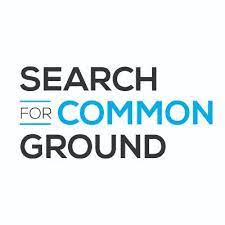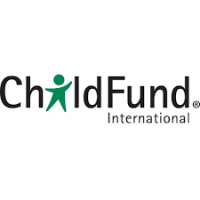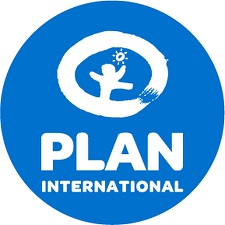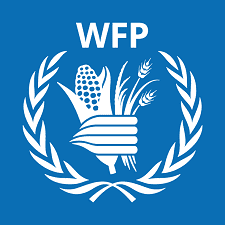Job Vacancy at Search For Common Ground: TOR – Radio Listenership Assessment
Terms of Reference
Radio Listenership Assessment
Women Unite! Strengthening Women-led Social Cohesion and Accountability in Sierra Leone
Context
We are Searchers. We are over 600 strong worldwide. We believe in our mission to end violent conflict. It’s our purpose- our call to action.
A Searcher understands our vision of a world where: Differences stimulate social progress, rather than precipitate violence. Respect for and cooperation with those we disagree with is considered the norm.
A Searcher is a dedicated, enthusiastic and passionate individual, committed to our values. Empathy. Audacity. Humanity. Humility.
(adsbygoogle = window.adsbygoogle || []).push({});
Our Program in Sierra Leone
Search has worked in Sierra Leone since 2000, producing innovative radio and television programs that have contributed to opening space for dialogue on critical and sensitive social and political issues in the country, while promoting social cohesion and reconciliation throughout the post-war period. In almost two decades of continued presence in Sierra Leone, Search has built a reputation as a neutral and trusted actor, allowing us to engage a diversity of stakeholders, including CBOs, CSOs, community members, local and national government stakeholders and institutions, community leaders and influencers, and media outlets. Within our work, we have advanced innovative interventions, addressing land rights, environment, education, and health. Moreover, as a core part of our country strategy, we have carved out a strong role within the governance space, particularly around driving women’s empowerment, participation, and inclusion; promoting government-citizen relationships and dialogue; and fostering collaborative and multi-stakeholder engagement around service delivery and increased transparency and accountability within governance.
Search led to the first phase of the Women Unite! Project, successfully managing three partners and implementing activities across five districts. Our past and current programming includes a wide range of funders and focuses on media engagement and awareness raising; violence prevention and social cohesion strengthening; women’s empowerment; and strengthening accountability and engagement between citizens and government. Throughout our work, we engage a wide range of issues (land rights, mining sector governance, budget transparency, accountability, gender equity, etc.), as well as a cross-section of key government, civil society, and community actors at the local, district, and regional levels. Our approach centers on local ownership and empowerment, and we focus on providing technical support and oversight to CSOs so that they can lead and sustain this important work.
About the Project
This project is a joint initiative implemented by Search for Common Ground (Search), in partnership with the 50/50 Group and Budget Advocacy Network being implemented in Kono, Port Loko, Kambia, Kenema, and Tonkolili districts.
(adsbygoogle = window.adsbygoogle || []).push({});
The overall goal is ‘to strengthen the role of women in promoting social cohesion and accountability at the local, district, and national levels for inclusive decision-making processes across Sierra Leone’.
This goal is supported by 3 interrelated objectives which are;
1. To build social cohesion at the community level through women-led approaches
2. To strengthen women’s role in promoting local-level accountability.
3. To increase citizens’ access to information and awareness raising around social cohesion and governance processes
To deliver this project, Search and its partners are working with 10 district-based women-led Civil Society Organizations, 580 members of Women Community Solidarity Groups, 6 local radio stations and 11 radio journalists based in the project districts.
4. PURPOSE OF STUDY
LISTENERSHIP ASSESSMENT:
As part of programming under Objective 3 of the project: To increase citizens’ access to information and awareness raising around social cohesion and governance processes.Through our Talking Drum Studio, we produced credible, balanced, quality and innovative media programs reaching millions of Sierra Leoneans nationwide. Through the ‘Atunda Ayenda’ program which is a fifteen-minute radio soap opera that is broadcast across thirty-three (33) partner radio stations across the country. Search promoted issues that are related to governance, women’s empowerment, participation and inclusion, food security, corruption, current economic situation, land rights, service delivery, accountability and transparency etc. The innovative format used in the radio drama series which includes both education and entertainment mimic real life incidents/situations and characterization.
(adsbygoogle = window.adsbygoogle || []).push({});
The incidents dramatized are incidents almost every Sierra Leonean can relate to; this makes it easier for them to easily digest the key messages and take action. This program has contributed in raising citizens’ awareness on various issues happening across the country and this has led to an increase in citizens’ demand for accountability and other socio-economic rights and it has also contributed to promoting dialogue between citizens and politicians.
Search places equal premium in all the radio programs produced. So far, some (243) editions of “Uman for Uman “weekly radio magazine program dealing with a range of issues affecting women have been produced and aired, four thousand, four hundred and sixty five (4465) episodes of Atunda Ayenda have been produced and aired. Another adapted awareness raising radio program that is becoming very influential in the Irish Aid funded project communities is the Studio-based Dialogue series (Kol Hart Barry). This is a live radio program that involves stakeholders including people in authority, civil society groups, women, youth and persons living with disability to discuss burning issues and suggest solutions. So far, 42 editions have been produced and aired since last year. Other related radio programs produced by Search for Common Ground and aired across the country include thirty (30) editions of Bush Wahala program produced and aired, sixty four (64) editions of Accountability now produced and aired, and producing jingles for awareness raising on rabies prevention.
Some of the issues covered are creating equal space for women and men in politics, women’s inclusion and participation in governance, promoting accountability and transparency among other crucial national and community issues. The program also featured successful women leaders and politicians to share their success stories so that upcoming women’s politicians or leaders will learn from them.
Although all of the aforementioned radio programs seem to be widely known and appreciated across the country, a series of field monitoring key findings have indicated a decline in radio listenership hence the reason for this assessment. The assessment will therefore seek to identify key issues, challenges affecting citizens' attitudes especially women in our project area towards radio listening and document possible strategies, solutions, programs, themes that would augment and motivate women to become active listeners as was during the war periods.
(adsbygoogle = window.adsbygoogle || []).push({});
- Table of Contents
Goal and Objectives of Study
The goal of the assessment is to gather detailed information using the 3Rs framework, Reach, Resonance and Response on radio listenership to guide planning and implementation of future programing.
The objectives of the assessment are to determine:
The REACH of our programs:
Saturation in the society – how widely has the radio programs been listened to?
Who has listened to the programs – have those people who are key to the objective of the project listened to aired radio programs? (Disaggregated by sex, age, location, time of listening etc.)
The RESONANCE with (Understand whether or not the audience is relating to and absorbing the messages of the programs aired)
Does the audience relate to the characters and to the core storyline?
Do they understand the message aired?
Do the narratives engage the listeners emotionally?
Do they apply the setting of the show and the lives of the characters to their own lives?
Have listeners gained new knowledge and developed new attitudes as a result of the radio programs?
The RESPONSE to our radio programs by the target audience:
What changes occur in society as a result of the radio programs?
Behaviors of our target audience and or specific actions that they are taking to address the conflict issues either cultural, political, symbolic level as well.
Methodology and Sampling
Qualitative and Quantitative methods will be adopted for this assessment. The assessment will be based on the 3-R framework, measuring the “reach” – who are listening to the radio program (disaggregated listenership rates); “resonance” – are the audience relating to the language, characters, story, and messages; and “response” – what changes the radio program has brought in the audience behavior or actions. The assessment will be conducted using qualitative and quantitative assessment administered to radio listeners in the five project districts of Kono, Port Loko, Kambia, Kenema, and Tonkolili districts
Sampling techniques and locations: A combination of purposive and stratified random sampling techniques should be used to draw the respondents for the assessment. The sample population should be drawn from the general population in the five project districts of Kono, Port Loko, Kambia, Kenema, and Tonkolili districts. Data will also be collected from respondents in the capital city, in a bid to test the reach and resonance of our media program outside our area of program implementation. In all, we will be collecting data in 5 districts and the Capital city targeting two chiefdoms in each district making a total of 10 Chiefdoms.
(adsbygoogle = window.adsbygoogle || []).push({});
Sampling Frame: Sampling should be done in consideration of age and gender of the respondents. Data should also be collected from an equal, or close to equal, number of males and females within these communities. To facilitate this, an equivalent number of male and female data collectors will be engaged. All respondents below the age of 18 will be exempted from the study for ethical reasons. Furthermore, participation in the study will be voluntary for all respondents, and consent will be sought at the start of all interviews.
Data Collection
Primary quantitative data will be collected for this assessment, using a questionnaire for the assessment. The questionnaire will be split into different sections based on the objectives of the assessment – demographics, reach, resonance, response and attitudes. The assessment will be administered electronically by trained data collectors, supervised by the consultant using their android mobile phones to collect data via KoboToolBox platform. The consultant will determine the recruitment of the enumerators making sure each data collector will be required to have an android phone, on which the Kobocollect mobile application will be downloaded. Data will be uploaded and reviewed daily, and feedback provided to the team of data collectors. This should be done ensuring that the Search DM&E team are fully abreast of all planning.
A minimum of 480 survey questionnaires are to be completed across the 5 project districts reaching 12 chiefdoms/communities including two communities in the Western Area Urban and Rural. This is calculated from the sample size 80 per district/Area, which is 40 per chiefdom/Community. The Consultant will also be expected to conduct Focus Group Discussions(FGDs) and Key Informant Interviews(KIIs) targeting project participants especially Women Community Solidarity Groups (WCSGs) and project key stakeholders such as select local government leaders and government line Ministries that have been involved in the project. In the five districts and two communities in the Western Area, a total of 120 radio listeners should be targeted, 10 per project chiefdoms/community. Similarly, a total of 18 stakeholders are to be targeted 3 per community which should include-(Traditional Local leaders, Ministry of Gender and Children Affairs rep, Local government leader rep, FSU rep, Mammy Queen Rep etc)
Data Analysis and Reporting
Descriptive methods should be used to analyze the data, measuring frequency and extent of the issues investigated in the communities. Preferably, the quantitative data should be analyzed using SPSS, focusing on frequency measures and cross tabulations between variables of interest. Writing of the report of the assessment will be led by the consultant and team, with inputs from the Program team on the project, and will be completed within the days specified in the deliverables herein.
(adsbygoogle = window.adsbygoogle || []).push({});
Logistical Support
The consultant(s) will be responsible for organizing their own logistics for data collection (vehicles, fuel, and drivers), and this must be budgeted into the study.
Search and partners will share the following elements with the external consultant: Background materials including the project proposal and logical framework, M&E plan, baseline, reports, etc.
The Evaluation Team will report to Search although they will not have control over the professional work of the evaluators.
The DM&E Coordinator based in Sierra Leone and Search’s ILT and DM&E teams in Washington/ Nigeria will provide technical guidance for the assessment to ensure the independence of the assessment process, and that Search’s independent assessment policy is followed.
Restitution
The intended users of the final assessment report will be the donor, Irish Aid, Search and the implementing partner’s 50/50, BAN. The consultant is expected to hand over the final report to Search including all logistics supplied for the exercise.
The report will be shared widely with project participants and partners, and presented during Search and Irish Aid meetings when necessary. The final report – with sensitive details redacted – will eventually be published on Search’s website and shared with other learning networks.
Ethics
The consultant is required to respect the following Ethical Principles:
Comprehensive and systematic inquiry: Consultant should make the most of the existing information and full range of stakeholders available at the time of the review. Consultant should conduct systematic, data-based inquiries. He or she should communicate his or her methods and approaches accurately and in sufficient detail to allow others to understand, interpret and critique his or her work. He or she should make clear the limitations of the review and its results.
Competence: Consultant should possess the abilities and skills and experience appropriate to undertake the tasks proposed and should practice within the limits of his or her professional training and competence.
Honesty and integrity: Consultant should be transparent with the contractor/constituent about: any conflict of interest, any change made in the negotiated project plan and the reasons why those changes were made, any risk that certain procedures or activities produce misleading review information.
Respect for people: Consultant respect the security, dignity and self-worth of respondents, program participants. Consultant has the responsibility to be sensitive to and respect differences amongst participants in culture, religion, gender, disability, age and ethnicity.
In addition, the consultant will respect Search’s assessments standards, to be found in Search’s assessment guidelines: http://www.Search.org /programmes/ilt/ dme_guidelines.html
(adsbygoogle = window.adsbygoogle || []).push({});
How to apply
Required Qualifications
The Evaluator (individual or firm) shall have the following expertise and qualification:
At least Master’s degree in Media and Communications, Public Policy, International Development, Diplomacy or any other relevant university degree;
Experience of project formulation and assessment and practical experience of radio listenership assessment in Sierra Leone or a similar context.
At least 5 years of experience of doing project assessment and/or research. Experience in conducting assessment for peacebuilding programming will be an added advantage.
Extensive expertise, knowledge, and experience in the field of aid effectiveness and aid management process related issues, local level and national governance, Social Cohesion and accountability in developing countries – especially in Sierra Leone.
At least 5 years of experience in working with international organizations and donors;
Knowledge and understanding of international and country-level implementation of governance and civil society support projects in Sierra Leone
Excellent written and verbal Communication skills is English.
Experience speaking of the Sierra Leonean languages including Temne, Mende, Limba and or Krio will be an added advantage.
The offers will be reviewed according to the following criteria:
Consultant's ability to conduct quantitative and qualitative studies, knowledge of methodology and field of research; ethical principles among others.
Research experience in areas of peacebuilding programing and governance; radio listenership
Consultant's ability to complete the study in a timely manner;
Consultant's capacity to recruit local data collection teams;
Quality of reports proposed by the consultant as a sample;
Other: Budget and quality of the writing of the consultant will also be carefully evaluated.
Submissions
The application file must include:
A technical offer of maximum 8 pages which will include:
A detailed methodology, including the main research questions;
A short proposal for the organization of data collection and supervision of enumerator teams;
An updated curriculum vitae of the Evaluation Coordinator of up to 4 pages;
In annex: 2 examples of studies / qualitative research conducted for other organizations as principal investigator.
A detailed financial offer which will include:
Consultant fees;
Costs related to the recruitment of accelerated field data collection teams;
Other items deemed necessary.
Mobility to the proposed locations
Interested qualified and experienced person, group of person or firms must submit an application package by 16th June, 2021 Midnight Sierra Leone time to:
copying: skoroma@sfcg.org,
outlining availability in line with the approximate timeline. Applications sent after the deadline stated herein will be rejected.
(adsbygoogle = window.adsbygoogle || []).push({});
Disclaimer: Careerical eConsult posts job listings for the convenience of job seekers. We do not endorse or recommend employers, and a posting does not constitute an endorsement or recommendation. Careerical eConsult explicitly makes no representations or guarantees about positions listed on our website. Careerical eConsult is not responsible for safety, wages, working conditions, or other aspects of employment. It is the responsibility of applicants to research the integrity of the organizations to which they are applying. We advise you to use caution and common sense when applying for any position with an organization or private party.





